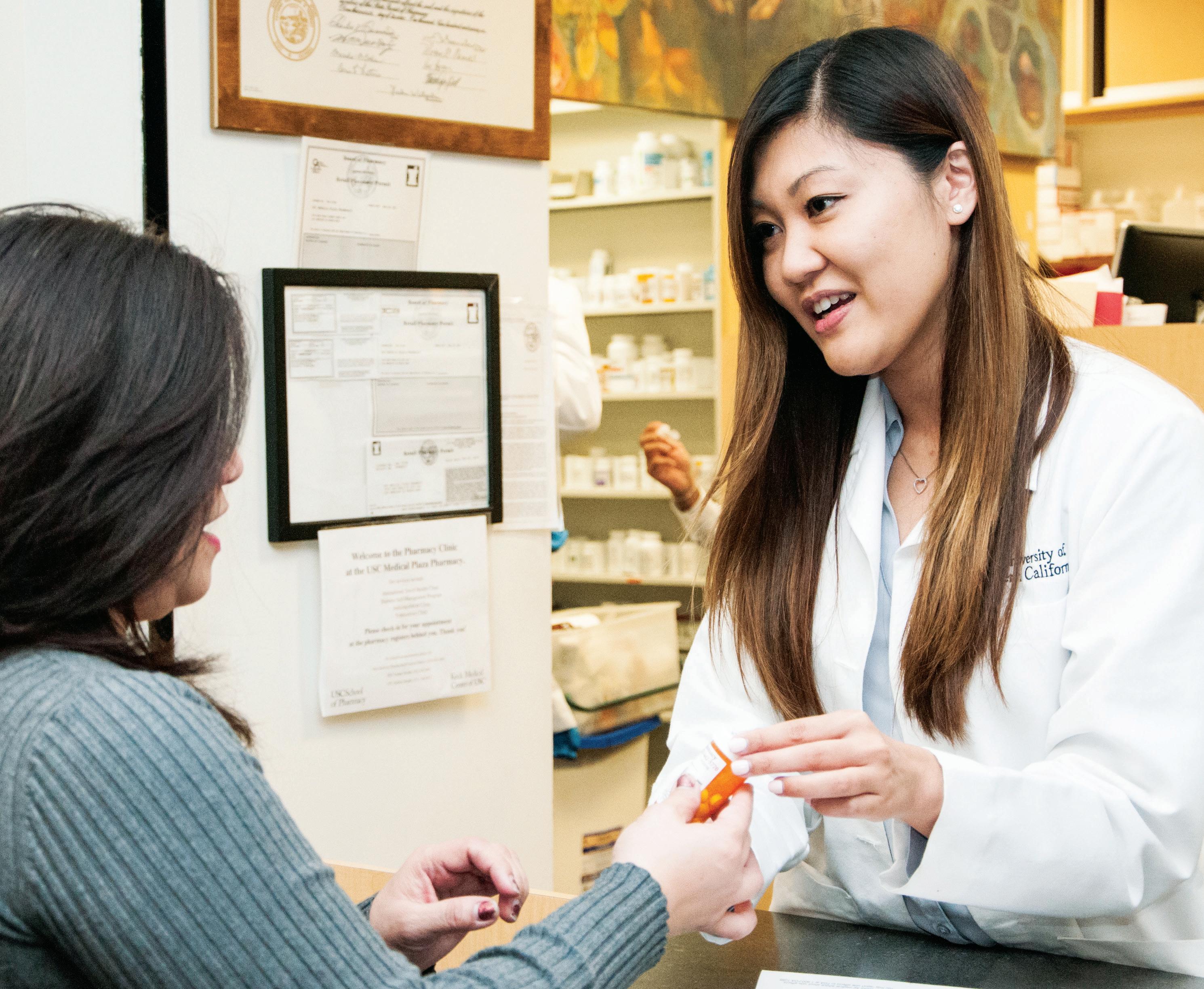
2 minute read
REDUCING HOSPITAL RETURNS
BROAD SPECTRUM
Reducing Hospital Returns
Expanding pharmacists’ role in patient oversight can reduce hospital readmissions, according to a study co-authored by USC School of Pharmacy Associate Professor Jeff McCombs. The research, published in the American Journal of Managed Care, points to a potential cost-saving solution for the growing physician shortage.
“This is the latest study to show that expanding the scope of practice for pharmacists could help patients and still save the health system money,” says McCombs, a faculty member at the USC Schaeffer Center for Health Policy & Economics, a partnership between the School of Pharmacy and the USC Price School of Public Policy.
The research was conducted in partnership with the Komoto Foundation, Synergy Pharmacy Solutions and Kern Health Systems in Bakersfield, California. For the study, Synergy pharmacists oversaw the transition of nearly 1,100 high-risk Medicaid patients who were discharged from Kern Health between April 2013 and March 2015.
The results demonstrated a decrease by as much as 28 percent in 30-day readmission rates. Adding pharmacists’ efforts to transition-of-care management also reduced patients’ 180-day readmission rates by nearly 32 percent.
“Pharmacists are in a position to fill a lot of the gaps in healthcare, but we’re in a wait-andsee mode on implementation of expanded practice,” says Danielle Colayco, PharmD ’08, a co-author of the study and director of health outcomes and value strategy for Synergy.
While California recognizes the status of pharmacists as healthcare providers, federal law does not. However, at his January confirmation hearing, Secretary Tom Price of the U.S. Department of Health and Human Services said he would consider expanding pharmacists’ role in patient care nationally.
“The evidence is clear that community-based pharmacists can reduce health costs,” McCombs observes. “The question is: Who will pay for expanding their role beyond dispensing medications at the counter?”
#4
The USC School of Pharmacy ranks fourth for the highest starting average salary ($133,328) in the nation for pharmacy graduates, according to Becker’s Hospital Review (March 2017). According to a study reported in the Washington Post, pharmacy manager and pharmacist rank No. 2 and No. 5 among the top-paying jobs in the U.S.
#2
The school’s Class of 2017 residency match rate of 76.5% is the nation’s second highest, significantly exceeding the average of 68.85%.
$8 billion
USC’s economic impact on California is estimated at $8 billion a year. In addition, the university attracts nearly $700 million annually in sponsored research awards for biotech and other healthrelated research.









